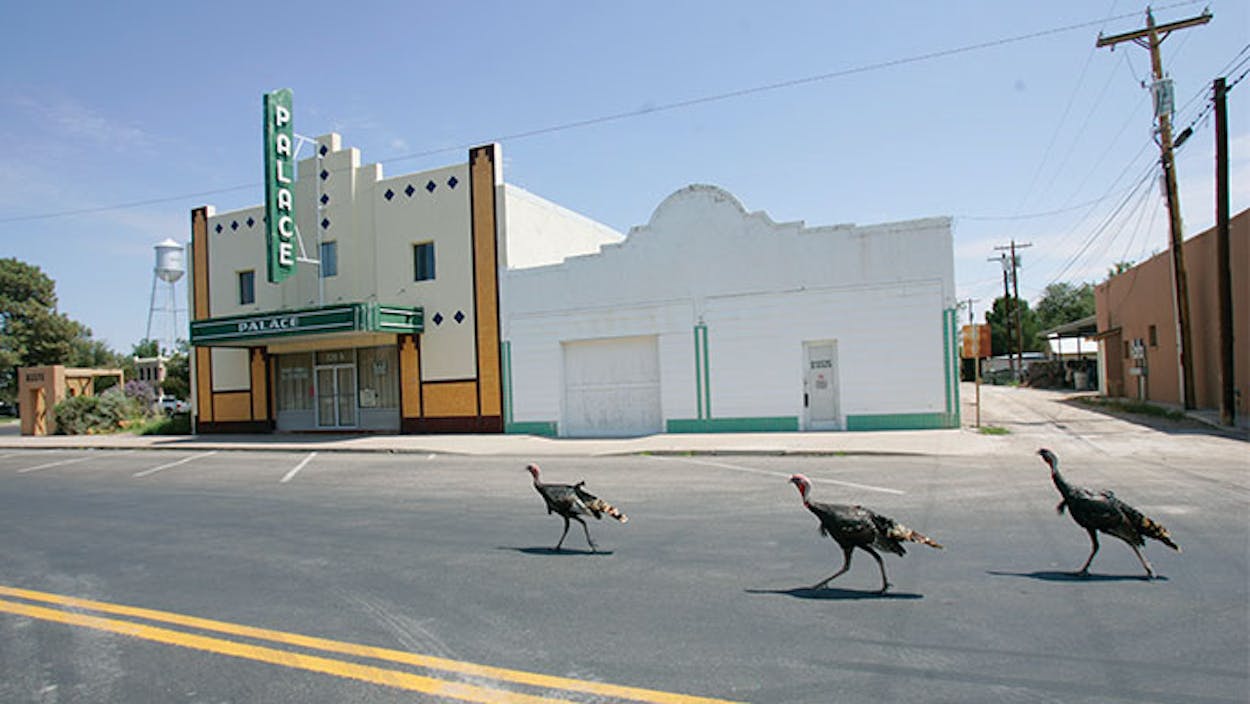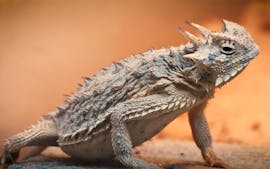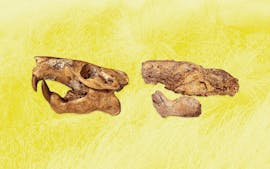To sound like a wild turkey, do the following: First, clear your throat. Next, hit a note near the top of your vocal range. Then, descend the scale while mimicking the action of gargling and waggle your tongue at the same time. Try not to feel ridiculous. Turkeys never feel ridiculous—of this I’m fairly certain.
If laryngitis or shyness prevents the use of your voice, a piano will do. We found this out a few years ago, when our son, Huck, was sent to dust the piano. He worked with a flourish, running the dust rag from the top of the keys to the bottom, several times over. The piano is old and we haven’t treated it with particular tenderness; consequently its tone has a ragtime, clink-clank quality that makes the piano tuner wince. During a pause between Huck’s exuberant swipes with the dust rag, a different sound rang out, a trilling, cartoony warble with a question mark at the end. We poked our heads outside, and there, coming toward us through the yard, were six wild Rio Grande turkeys, three hens and three gobblers. They stared; we stared. One of the males cocked his head and belted out his call. Huck ran back to the piano and zipped his fingers down the keys.
Unhurried and unruffled by our presence, they appeared to very much want to make the acquaintance of the turkey inside the house. While the hens picked gracefully through the dead leaves and fallen pecans in the yard, the males strolled by the window, halting in mid-step to consider the piano’s notes. They gobbled; we ran the scales. At last bored of seeking their mysterious brethren, all six turkeys stepped across the street, scratched in the dirt near our neighbor’s porch, and settled down for a winter afternoon’s sunbath.
This was the golden age of Marfa’s wild turkeys, when their presence was still a welcome novelty, their kingly promenades a source of coffee shop chatter and affectionate snapshots posted on Marfa’s online bulletin board. Their precise origin was never known. A story that they were escapees from someone’s backyard flock turned out to be false; it’s likely that their mother hatched the brood somewhere in the grassy rangeland near town, and when they were old enough to hold their own, she left. They were first spotted as adolescents, and they traveled as a sextet wherever they roamed. Later, as they aged, the hens separated from the gobblers, and they stayed that way, grouped by gender.
You do not have to be a topflight birder to discern the difference between hens and their brothers. Hens are feminine, rather elegant, and a soft ashy-brown. They click and churr to one another in constant conversation. The males are resplendent fellows, decked out in an iridescent quilt of bronze, copper, and gold feathers that shine green in strong sunlight. A pink slug of flesh, called a snood, drapes over their beaks, and a stringy beard, like a section of horse’s mane, hangs from their chests. Their heads are a naked pink, but when gobblers are aroused by curiosity, high excitement, or potential passion, their heads queerly turn sky-blue and their snoods and wattles blush a deep red.
Marfa’s wild turkeys ranged mostly in the northwest section of town, roosting in trees above the ranch-style homes on Plateau Street and hunting beetles in the dry creek adjacent to the high school’s football field. They paraded around town in a comical, stately procession. Traffic stopped as they sashayed down Marfa’s main drag on their way to the courthouse. Opportunists, they feasted on a buffet of bugs caught in the grills of vehicles parked downtown. If startled, they flew to the safety of a rooftop with unexpected athleticism.
The turkeys had a peculiar fascination with their own reflections—whether this behavior stemmed from mistaking their reflected images for other turkeys or a depthless vanity for their appearance I do not know. Regardless, they spent a great deal of time gazing at themselves in silvery car bumpers and the windows of businesses. If things around the house dragged on a long, gray Sunday afternoon, a suggestion to go find the turkeys perked up everyone. The turkeys always delivered. Tap on your leg as you trotted or pedaled past and they followed in a game of chase.
Usually we saw the gobblers in their workaday wardrobe, their feathers sleek and close against their bodies, looking as much like a dinosaur as a bird. Let it be known, though: wild turkeys have swagger. The transition from regular old turkey to the extraordinary Thanksgiving-mode, fully fluffinated version takes about half a minute. It starts with an all-over shake and repositioning of the head and neck. The breast and back feathers rise and separate, the tail fans and expands into a huge half circle, and, as a finale, the head, snood, and wattle take on their deeper hues. Show-off. Its finery satisfactorily deployed, the bird slowly struts about. He is so secure in his good looks and fortune that he cares not at all about his impact on the goings-on around him: the frantic barking of dogs, the screech of the garbage truck’s brakes, the backpack-laden children sidestepping past him in the crosswalk in front of school. For reasons they kept to themselves, the gobblers in particular were drawn daily to the clatter and commotion of the town’s elementary school. The turkeys marched gloriously by the cafeteria. They’d raptly watch from the playground fence as children spun the merry-go-round. They were our friends, or so we thought.
But nothing magic ever lasts. After months of harmonious coexistence with Marfans of all stripes, the wild gobblers turned brazenly bossy. They had fed all their lives on the town’s bounty. Grasshoppers in the tall grass. Meow Mix filched from bowls on the porch meant for outside cats. Corn scattered in the yard by well-meaning admirers. As a result, the gobblers had grown quite large. An adult wild turkey can weigh twenty pounds or more and stand nearly four feet tall. These fellows easily met those measures. The turkeys’ obsession with the school yard evolved into something more menacing. That game of chase wasn’t so innocuous anymore. Most elementary-aged children stood eye to eye with the birds, and when the turkeys ran at a child, they could not easily be bluffed away or stopped. Think of how that feels, to be charged by a bird as tall as you. They flapped after a child in a wheelchair and cornered another walking home; rescue came in the form of the school bus, whose astute driver saw the situation and maneuvered so the girl could leap aboard.
My husband, then a prekindergarten teacher, once heroically held the birds at bay with much jumping, yelling, and running around until the playground emptied. When he slipped safely inside the door, just ahead of the birds, the turkeys mashed their faces to the windows and stared balefully at the children they could not reach. The city’s animal control officer took to sitting in front of school every morning and afternoon, cajoling the turkeys into following him by slapping the side of the truck and driving away. When they weren’t at school, the gobblers perpetually chased bicyclists—they kept abreast of a speeding bike no problem—and caused distracted tourists to swerve to avoid them in the road. An accident seemed imminent.
One afternoon we spied a gaggle of game wardens in our neighborhood with nets and trucks. Word around town was that the birds would be relocated. The hens disappeared first, then within a few weeks, so did two of the gobblers. The third tom, now a solo act, kept a low profile. No more stopped traffic. No more dark forms roosting in the cedars.
Then, nearly a year later, the two absent toms showed up at a party on the south edge of Marfa. They looked bedraggled and hungover, their tail feathers broken and uncharacteristically messy. A partygoer shooed them away, and they stayed gone.
Without the company of others, the remaining gobbler rarely left his tree-lined neighborhood. He half-heartedly loped after my son when we visited friends. He seemed to have lost his strut. The other day it occurred to me that we had not seen him in a while, so we went looking for him, as we used to do. It was a long, gray Sunday afternoon. We rolled slowly through the streets and gobbled for him, like old times, but he never answered our calls.








